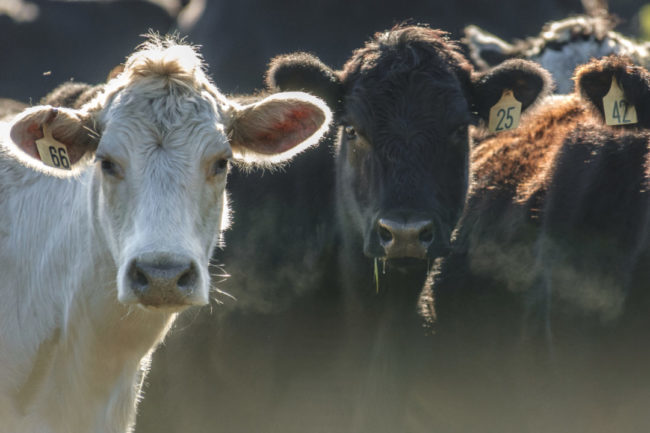GAINESVILLE, FLA. — A University of Florida (UF) scientist recently received a $650,000 grant from the US Department of Agriculture National Institute of Food and Agriculture to help increase beef cattle production.
Mario Binelli, an assistant professor of animal sciences at UF, said the study would focus on making sure embryos thrive in cattle uteri to help improve the herd’s reproductive performance.
“We anticipate finding tools that beef producers can use to increase pregnancy success in cow-calf operations,” Binelli said. “Because reproductive efficiency is key to competitive beef cow-calf operations, new strategies and tools generated through successful completion of our proposed research are expected to contribute directly to long-range improvement and sustainability of US agriculture and food systems.”
Data from the university researchers showed that Florida ranchers raise 895,000 adult beef cattle, generating $511 million in sales revenue for the state. It additionally supports $215 million in sales revenues for other industries in the Florida economy.
Binelli will receive help on the research project from Philipe Moriel, an associate professor at the Range Cattle Research and Education Center and Peter Hansen, a distinguished professor in Gainesville.
The researchers explained that female cattle reproductive failure happens during early gestations because the uterus is not receptive to embryos.
“We need to define the nature and abundance of molecules present inside the uterus when a pregnancy succeeds,” Binelli said. “We’re testing whether cattle are more or less likely to become pregnant, based on how the uterus works and what’s inside it. With such evidence, we hope to generate non-genomic markers to better identify and select high-fertility females in beef herds.”
UF researchers expect the project to be done over four years. The university expects the study to bring new data that can be shared with other researchers worldwide about the influence of breeds, season, stress, lactation, synchronization strategies, nutritional strategies and energy on the uterine environment and its ability to support pregnancy.



